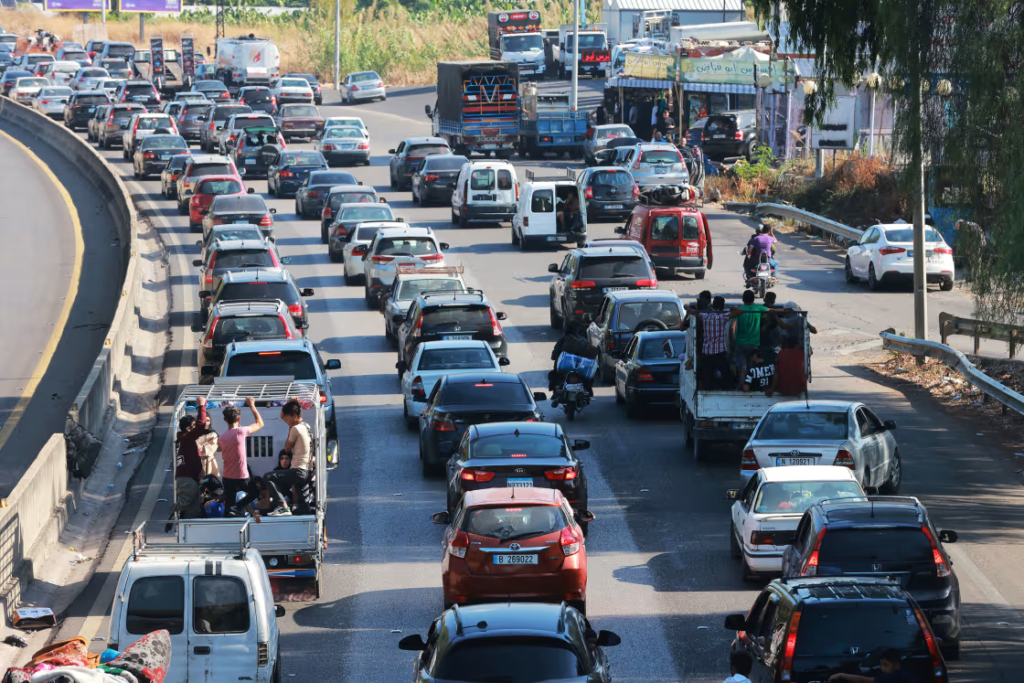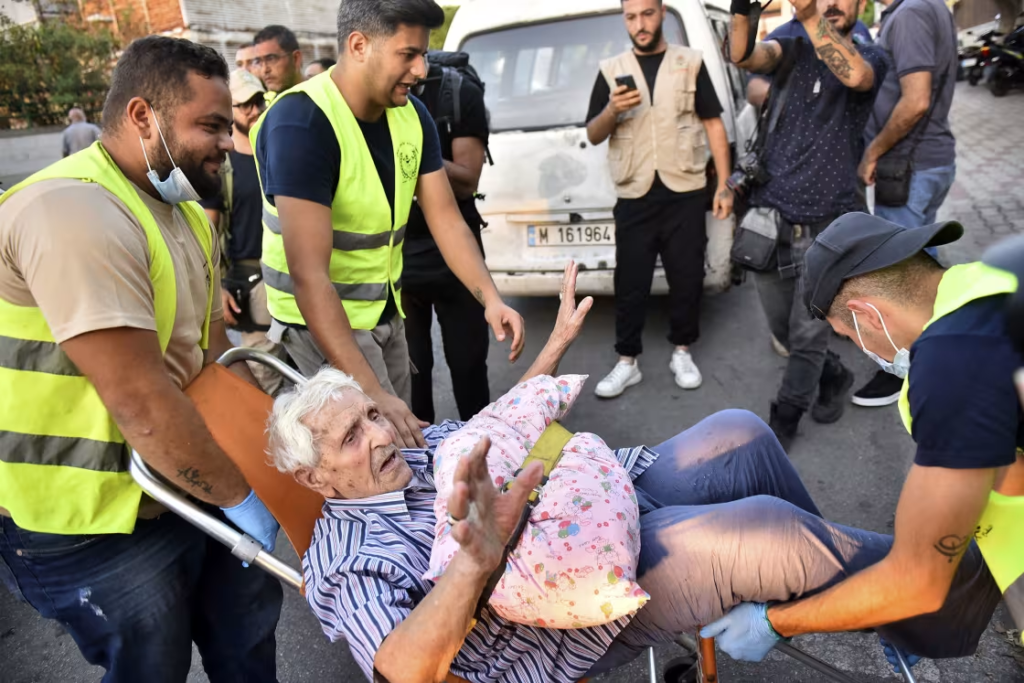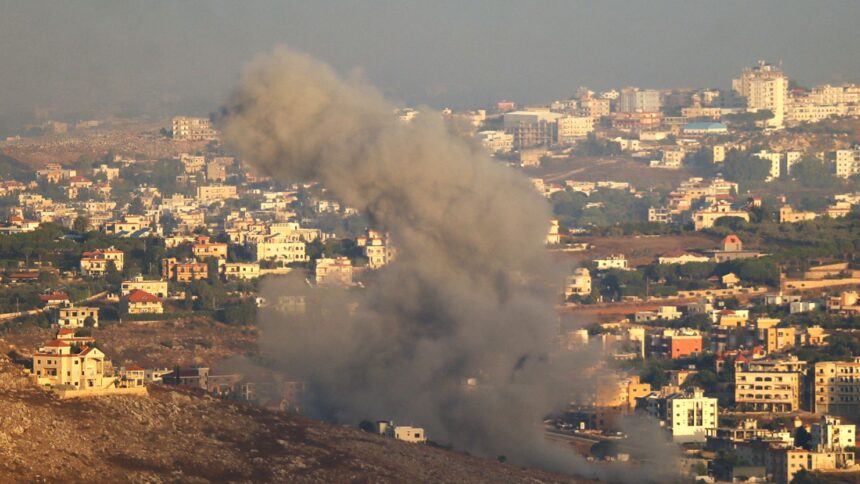In a devastating escalation of violence, southern Lebanon has been severely hit by Israeli airstrikes, with over 550 reported dead as of September 24, 2024. This has marked the deadliest day in Lebanon since the 2006 war between Israel and Hezbollah. The strikes came in response to cross-border fire from the Iran-backed militant group Hezbollah, following Israel’s military warning for civilians to evacuate the area.
Mass Displacement from Lebanon and Humanitarian Crisis

Tens of thousands of Lebanese civilians have fled the southern region, jamming roads as they attempt to escape the intense bombardments. The United Nations Refugee Agency (UNHCR) reported a mass exodus, as people were urged by Israel to leave their homes before waves of aerial attacks. The situation has quickly evolved into a large-scale humanitarian crisis, with shelters in cities like Beirut struggling to accommodate the influx of displaced families. The U.N. and aid agencies are warning of dire conditions, particularly for children, with UNICEF stressing that any further escalation could be catastrophic for Lebanon, already reeling from economic and political instability.
Israeli Strikes and Hezbollah Retaliation

The Israeli Defense Forces (IDF) have launched what they call “Operation Northern Arrows,” striking dozens of Hezbollah targets in southern and eastern Lebanon, including strategic strongholds that Israel claims have been developed for decades. In response, Hezbollah has continued its barrage of rocket fire into northern Israel. The Israeli military chief has vowed to continue operations “at full force,” stating that Hezbollah’s infrastructure must be dismantled to ensure the security of Israel’s northern regions.
Growing Fears of Regional Conflict
As the death toll rises, with Lebanese health authorities reporting at least 558 deaths—many of them children and women—global concern about a broader regional conflict is mounting. The European Union’s foreign policy chief, Josep Borrell, has voiced alarm, warning that the situation is nearing an all-out war. Meanwhile, Washington has been preparing to evacuate American citizens from the region and is pressing for diplomatic efforts to de-escalate the violence, though it does not support Israel’s strategy of escalating military actions to achieve de-escalation.
International Diplomatic Efforts
U.S. Secretary of State Antony Blinken is expected to push for de-escalation at the U.N. General Assembly, coordinating with key international partners, including the Group of Seven (G7) countries. However, a senior U.S. State Department official has expressed skepticism about Israel’s intensification of its military campaign, stressing that such escalations rarely lead to long-term stabilization.
The crisis is evolving rapidly, with Lebanon facing one of the most challenging periods in its recent history as the prospect of a larger regional war looms.



![Members of India's Open team celebrate with the winner's trophy at the 45th FIDE Chess Olympiad in Budapest, Hungary, September 22, 2024 [Denes Erdos/AP]](https://famedelivered.com/wp-content/uploads/2024/09/AP24266775341300-1727075098-150x150.webp)





